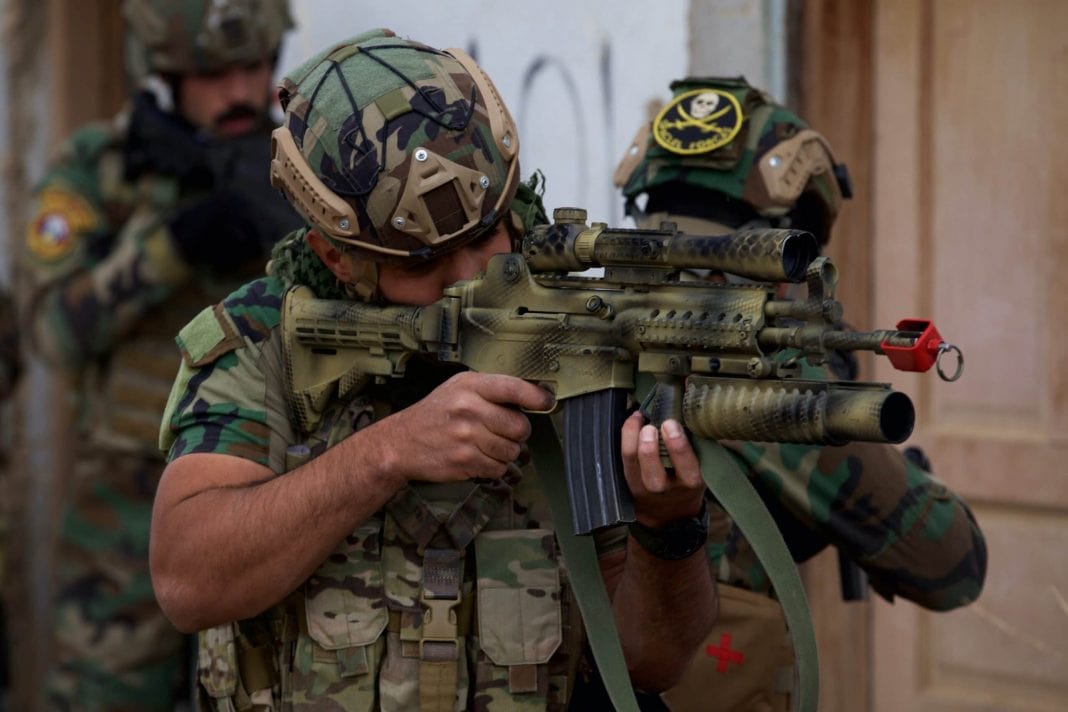Iraq’s government is paralysed by protests between Shi’ite cleric Moqtada al-Sadr and his rivals. Sadr and his movement believe his rivals, the Coordination Framework, are corrupt and have succumbed to foreign intervention. Al-Sadr won the October election but failed to form a government because he tried to exclude his Shi’ite rivals, most of whom are backed by Iran. His followers broke into the Green Zone and they refused to leave until al-Sadr ordered them to continue the protests outside the buildings. Sadr has since declared his retirement from politics leading to unrest from his supporters who have tried to take control of the main cabinet headquarters. Opposition and security forces opened fire on the demonstration leading to 10 deaths and many injuries. The Sadrist movement is under attack from the PMF and Iraqi security forces.
KJ 1: It is likely that al-Sadr’s retirement from political life will create more political tension in the next 6 months.
- Both sides of this dispute head armed militias that they used to disrupt protests and opposition in the past. [source]
- Al-Sadr’s exit from politics has created no opposition to Iran-backed parties, therefore, Al-Sadr’s supporters have begun an offensive campaign to take control. There have been skirmishes between Sadrists and rival Tehran-backed groups, such as the PMF, as well as the security forces. The PMF fired toward Sadrist supporters, and others threw rocks, while the security forces have been allowed to use force against the demonstrations. [source]
- Iraq is loaded with guns after many years of unrest and fighting. Since the Iraq war weapons have been circulating in the country with militias and civilians alike having weapons. [source]
- The exiting Prime Minister, Mustafa al-Kadhimi is currently acting as caretaker until Iraq can form a new government. If a new government doesn’t form, he might hold on to power which would stir more unrest among Sadr supporters. [source]
- Security forces fired tear gas to disperse Sadrists but his followers are fervent and will likely continue to fight against foreign intervention. Although al-Sadr announced the closure of all institutions linked to the movement, it is unlikely that supporters will abandon the cause so easily. [source]
- Saraya al-Salam, al-Sadr’s armed militia group, has fought in the past against the Americans, Iraqi Armed Forces, Islamic State militants and other rival Shi’ite militias. Currently, Saraya al-Salam is fighting the Iraqi security forces and the PMF (Popular Mobilisation Forces) backed by Iran. [source]
- In the past, Iran has intervened in political matters in Iraq. Moreover, they could do the same to ensure their allies take governing power. However, this would enrage many of Sadr’s nationalist followers, possibly leading to violence. [source]
KJ 2: It is highly likely that Iraq will not form a government in the next 6 months.
- Al-Sadr is a staunch nationalist and believes that his rivals are corrupt and allied to foreign influences. Although he has retired from politics, it is unlikely that his supporters will back down from the cause. Unrest has already flared up, however, the parties are so polarised that it is unlikely that the unrest will be resolved peacefully. [source] [source]
- Sadrist supporters have paralysed the governmental process completely halting any progress towards building a government. Although al-Sadr told his supporters to vacate the buildings, they continued their demonstrations outside the buildings. Now that al-Sadr has quit, the protests have escalated to violence. [source] [source]
- Political deadlock amongst the three main governmental entities has stymied any progress toward establishing a government. Not only this, but Iraq’s state-owned oil marketer has threatened legal sanctions against buyers of crude oil originating in the Kurdish north of Iraq. This could also prolong the formation of a new government due to the primary event being the election of Kurdish parties. [source]
- Al-Sadr’s quitting politics leaves parliament completely open to Iranian-backed political groups. This is likely to cause huge unrest in a country torn between nationalist groups and foreign interventions. Unrest has already led to ten deaths and many more wounded, but this will likely rise as the situation becomes more desperate for those who rival foreign support in their politics. [source]
KJ 3: It is likely that foreign intervention will be required to break the stalemate and reduce the chance of conflict in the next 6 months.
- Both the US and Iran have a vested interest in Iraq because of how rich in oil the country is. Violence in the country could make it difficult to export crude oil out of Iraq and reduce oil prices. With sanctions on Russia, it would likely be hugely damaging to the global oil supply and Iraq’s economy. Iraq’s oil exports have been trending up, so any unrest will have detrimental effects on the country. [source] [source]
- Iran and Saudi Arabia have held talks in Baghdad to improve their relationship over the past months. The leading Shi’ite and Sunni powers will resume talks when the political situation in Iraq improves. However, that could be far in the future while the political situation remains so difficult. [source]
- Iraq posted its greatest profit from crude oil sales in its history due to high prices. However, without a government, it cannot create a budget which reduces the likelihood of fixes to infrastructural issues and food and water shortages. [source]
- Drought in Iraq has created food and water shortages leading to humanitarian issues. The World Food Programme says 2.4 million of the 39 million population are in acute need of food and livelihood assistance. This will not come if it does not form a government, and violence breaks out. [source]
Intel Cut-off: 30 August 2022

